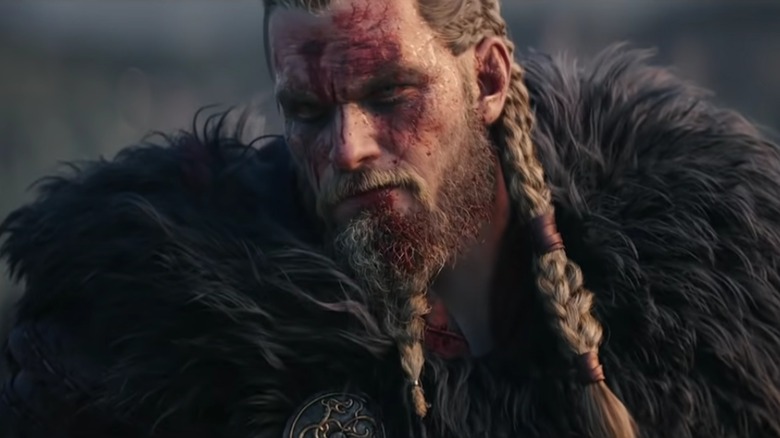The Assassin's Creed: Valhalla Easter Egg D&D Fans Shouldn't Miss
Ubisoft's latest RPG, Assassin's Creed: Valhalla, might be devoid of goblins, orcs or dragons, but it has all the exploration and combat a Dungeons & Dragons fan might desire. It also has something that will no doubt go down a treat with d20 rolling hobbyists everywhere: a sneaky little reference to the original roleplaying game.
Like many open-world video games, Assassin's Creed: Valhalla is crammed full of Easter eggs for eagle-eyed players to spot. Already, secrets relating to the anime One-Punch Man, Harry Potter and even Portal have been discovered. Now, Twitter user @PlaywithJambo has found a Dungeons & Dragons Easter egg. In a neat bit of environmental storytelling, a series of papers located at Foris Turre, a viewpoint in Wessex, reveal that whoever was there before the player was having their own little tabletop session.
At the location, you'll find four character scrolls (as opposed to sheets) explaining the attributes of each player and some Dungeon Master notes outlining what happened during the session. There are even some dice trays that were left behind by the adventuring party. Whoever popped this Easter egg into the game clearly had some fun dialing the wackiness up to eleven. One of the players is a "bearserker" with infinite HP who speaks the language of "Cuddletongue", while another has a proficiency bonus in "six blueberries". They must have a very tolerant DM.
Fans found the whole thing pretty wholesome, praising the exceptional attention to detail. The Easter egg doesn't name the game that's being referenced here. Instead these centuries old players have dubbed their invention "Prisons and Pyewackets". It's pretty obvious what it's meant to be however, and one line referring to "the faded glory found in the bones of dungeons and the mouths of dragons" makes the reference explicit.
Players generally don't expect the Assassin's Creed series to be historically accurate at this point, but roleplaying games, at least in this iteration, are a relatively recent invention. That said, while D&D wasn't created till the '70s, many board games do have their roots in ancient history.
These kinds of loving touches may be one of the reasons Assassin's Creed: Valhalla has done so well with critics and performed even better than Ubisoft expected. It certainly seems to be a worthy addition to the series. Sometimes, little things like references to popular tabletop RPGs can make all the difference.

